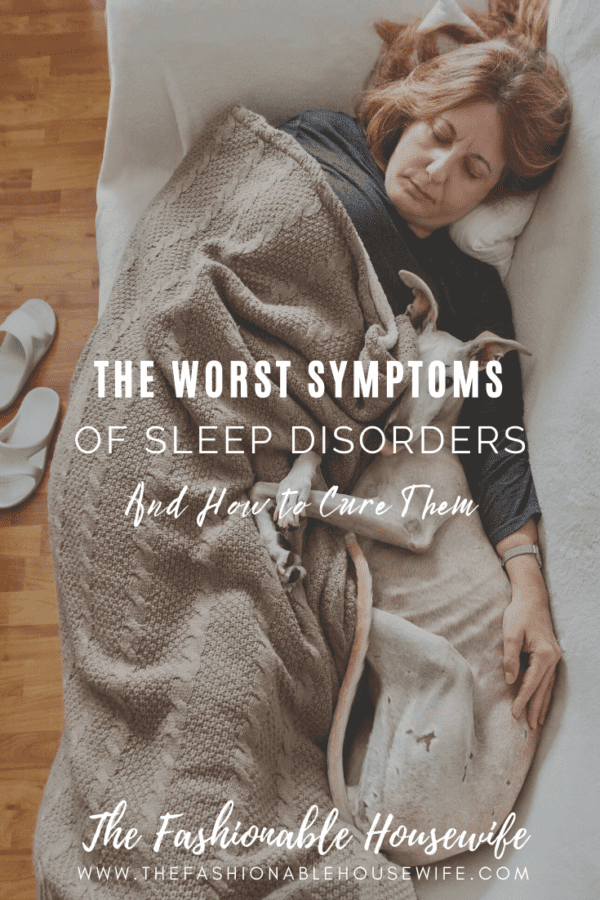
A sleep disorder is a condition in which your sleep gets impaired frequently, and you stay restless. This affects your productivity in the daytime, and you remain tired and lazy. Sleep is essential for your health. An inadequate amount of sleep can cause other chronic illnesses. Therefore it is crucial to treat sleep disorders.
A sleep disorder occurs when your pineal gland stops producing enough melatonin, a sleep hormone that regulates your circadian rhythms. As a result, it is usually made in darkness. A deficiency of melatonin can be overcome by taking melatonin supplements which are available in varying forms. Commonly, adults and children like taking melatonin gummies by the Gummies Garden, Nature’s Bounty, Garden of Life, and various other brands. Gummy sleep supplements are appealing, pleasant tasting, convenient, and as nutritious as a pill.
Types of Sleep Disorders
Sleep disorder types are grouped into categories according to patterns and behaviors. Common types of sleep disorders include:
- Insomnia
- Sleep Apnea
- Restless Leg Syndrome
- Narcolepsy
Insomnia is the most common sleep disorder in which it becomes difficult to fall asleep or stay asleep throughout the night.
In sleep apnea, abnormal breathing patterns are observed while you are asleep. Sleep apnea is also of various kinds.
Restless Leg Syndrome or RLS is a sleep disorder that causes an uncomfortable sensation in the legs during nighttime that urges the legs to move when you want to sleep.
Narcolepsy is characterized by severe sleepiness during the day.
Symptoms of Sleep Disorders
There are many symptoms of sleep disorders that can help your doctor diagnose them correctly. Once diagnosed, it becomes easier to treat it appropriately.
Following are the symptoms of sleep disorders:
- Experiencing trouble falling asleep at night frequently.
- Feeling sleepy all through the daytime.
- Suddenly falling asleep at inappropriate times.
- Feeling an uncomfortable urge to move your legs while trying to fall asleep.
- Feeling a sensation of tingling and bugs crawling up your feet.
- Experiencing unusual breathing patterns while sleeping.
- Having an irregular sleep-wake cycle.
- Having difficulty in concentrating or focusing at work.
- Being told frequently that you look sleepy.
- Feeling irritable and angry all the time.
Treatment for Sleep Disorders

Experts recommend a variety of methods for the treatment of sleep disorders. Some of them are:
- Counseling: Seeing a sleep specialist is suggested in various cases. This therapy is based upon your cognitive behavior and helps you realize stress-inducing thoughts that do not let you sleep at night. There are sleep specialists who can help you overcome your sleep disorder.
- Medication: Medication is also recommended as it helps your mind, body, and soul relax. This relaxation can help induce sleep.
- Supplements: Supplements can provide a way to overcome essential organic chemicals’ deficiency that helps induce sleep.
- Scheduling: Practicing a strict schedule and sleeping and waking at the given time throughout the week, even at weekends.
- Exercise: Doing mild, regular exercise that could regulate your circadian rhythm and regulate sleep.
- Creating a Soothing Environment: Keeping your sleeping spot cozy, comfortable, quiet, dark, and a place without disruptions can facilitate sleep.
Recommended Medicine for Sleep Disorders
For treatment of sleep disorders, health care providers suggest the following medicines and supplements:
- Taking sleep aids for sleep disorders like melatonin, ramelteon, lemborexant, zolpidem, etc.
- gabapentin, enacarbil, or pregabalin can be given for RLS.
- Stimulants like pitolisant, armodafinil, solriamfetol, etc., can be given for Narcolepsy.
These medicines should only be taken if prescribed by your physician. Any medication should never be taken without your doctor’s advice.
Tips for Good Night’s Sleep

Following the below-mentioned tips, you could get a good night’s sleep and beat your sleep disorders. These are:
- Do not use mobile phones in bed. Also, avoid using any screen. It is much better to read a book while sleeping than to use a cell phone.
- Always have positive thoughts and do not go to sleep with a negative mindset.
- Try to make your bedroom as cozy and comfortable as possible away from sounds and lights at night.
- Make a to-do list for the next day in bed. This would make you stress less over the next day’s tasks and let you sleep peacefully.
- Follow a schedule for going to bed and getting up in the morning and try to follow it strictly, even on weekends and vacations.
- Avoid having naps the day after evening. One or two 30-minute naps are OK.
- Avoid having caffeine at night. Also, avoid other stimulants like tea, chocolate, carbonated drinks, etc.
- Avoid tobacco and alcohol consumption at least four hours before bedtime.
- Avoid eating heavy meals at dinner. Stay away from fried food and junk food and maintain a healthy balanced diet.
- Leave your bed if you find it difficult to fall asleep. Engage in productive activity or read a book and return to bed when you feel sleepy.
- Avoid using your bed for eating, working, watching T.V, etc. It should only be used for sleeping.



